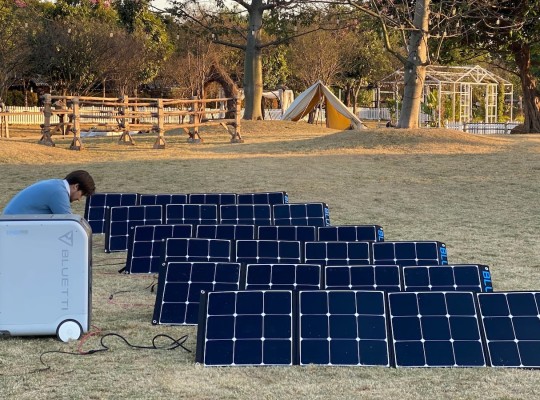The Distributed Energy Storage System (DESS) market has witnessed significant growth and evolution in recent years, driven by the increasing integration of renewable energy sources, advancements in energy storage technologies, and the growing need for grid resilience. This market plays a pivotal role in addressing challenges associated with intermittent renewable energy generation and optimizing energy distribution.
Key Companies Profiled
· Fluence
· GENERAL ELECTRIC
· Hitachi Energy Ltd.
· Jabil Inc.
· Johnson Controls
· NextEra Energy Resources, LLC
· Juniper Networks
· Panasonic Corporation
· SAMSUNG SDI CO., LTD.
· Schneider Electric
· Tesla
· TOSHIBA CORPORATION
One of the key drivers behind the expansion of the DESS market is the rising adoption of renewable energy sources such as solar and wind power. As the world transitions towards a more sustainable and low-carbon energy future, the intermittent nature of these renewable sources poses challenges to grid stability. Distributed energy storage systems offer a solution by storing excess energy during periods of high generation and releasing it during periods of low generation, thereby helping to balance the grid and enhance reliability.
The technological advancements in energy storage systems have been a catalyst for the growth of the DESS market. Lithium-ion batteries, in particular, have gained prominence due to their high energy density, long cycle life, and declining costs. The decreasing cost of battery storage technologies has made DESS more economically viable, leading to increased deployment across residential, commercial, and industrial sectors.
Grid resilience and reliability have become critical considerations in the face of increasing natural disasters and extreme weather events. Distributed energy storage systems contribute to grid resilience by providing backup power during outages, enhancing the ability to quickly restore power, and ensuring a more reliable energy supply. This aspect has gained significance, especially in regions prone to extreme weather conditions, making DESS an integral part of modern energy infrastructure.
The market for DESS is characterized by a diverse range of applications. In the residential sector, homeowners are increasingly adopting small-scale energy storage solutions to store excess energy generated from rooftop solar panels. This not only allows for increased self-consumption of solar energy but also provides backup power during grid outages. On the commercial and industrial fronts, businesses are investing in larger-scale distributed energy storage to optimize energy use, reduce peak demand charges, and enhance overall energy efficiency.
Government policies and incentives have played a pivotal role in fostering the growth of the DESS market. Many countries have implemented supportive policies, such as tax credits and subsidies, to encourage the adoption of distributed energy storage systems. These initiatives aim to accelerate the transition towards a more sustainable and resilient energy infrastructure.
As the DESS market continues to evolve, the integration of smart technologies and digitalization is becoming increasingly prevalent. Advanced energy management systems and smart grid technologies enable real-time monitoring, control, and optimization of distributed energy storage assets. This not only improves the efficiency of energy storage systems but also contributes to the overall smart grid ecosystem.
In conclusion, the Distributed Energy Storage System market is experiencing robust growth driven by the need for grid stability, the rise of renewable energy sources, technological advancements, and a growing focus on grid resilience. As the world strives towards a more sustainable and resilient energy future, the role of distributed energy storage systems is set to become even more significant in shaping the landscape of the global energy market.













